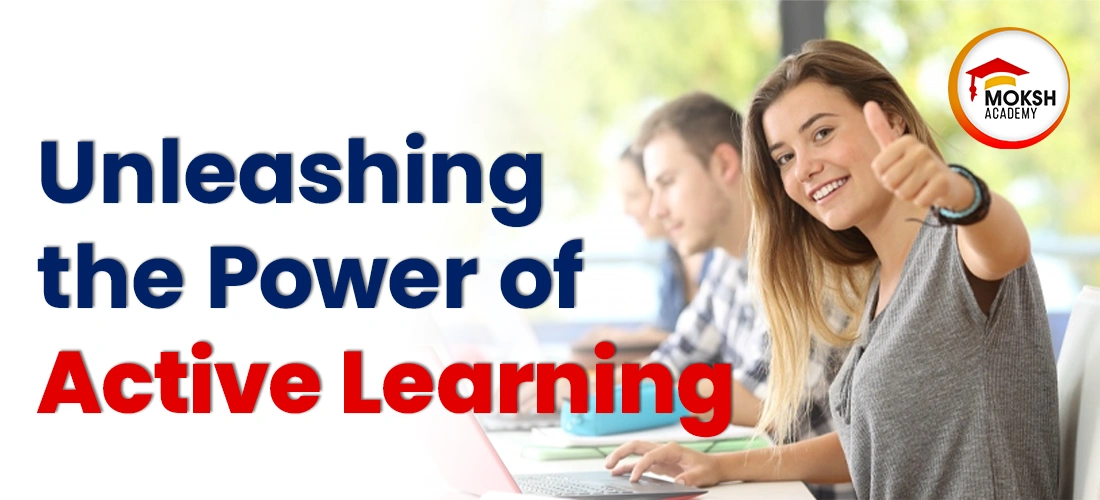-
Dec 10, 2023
-
MOKSH Academy

A student-centred method of instruction is called Active learning, which emphasizes engagement and participation. It contrasts with passive learning, where students statically receive information through lectures or reading textbooks. Active learning techniques encourage students to process, analyze, and apply knowledge rather than passively absorbing it.
Why is Active Learning Effective for USMLE Preparation?
Active learning offers several advantages for USMLE preparation:
- Encourages Deeper Understanding: By allowing students to interact more deeply with the content through live lessons and question-answering exercises from Moksh Academy, active learning helps students grasp concepts and principles on a deeper level.
- Enhanced Retention: Active learning techniques create stronger neural connections, improving retention and recall. The more profound engagement with the material ensures that information is not easily lost in the depths of memory but is readily accessible when needed.
- Critical Thinking Prowess: Active learning fosters the development of necessary thinking skills, enabling students to analyze, evaluate, and synthesize information effectively. These skills are indispensable for success in the USMLE Step 1, where students must apply their knowledge to complex clinical scenarios.
- Problem-Solving Mastery: Active learning enhances problem-solving abilities, empowering students to navigate challenging situations confidently. By actively engaging with practice questions and problem-solving exercises from Moksh Academy, students develop the skills necessary to tackle the USMLE Step 1's rigorous assessments.
Active Learning Techniques for USMLE Preparation
A wide range of active learning techniques can be incorporated into USMLE preparation:
- Concept Mapping: Visualizing relationships between concepts through concept maps provides a holistic understanding of the material, enhancing comprehension and retention.
- Practice Question-Answering: Engaging with practice questions and problem-solving exercises from Moksh Academy allows students to apply their knowledge practically, developing clinical reasoning skills and solidifying their grasp of concepts.
- Collaborative Learning: Discussing concepts with peers, forming study groups, or participating in online forums fosters diverse perspectives and deeper engagement with the material. Moksh Academy Mentors can guide these collaborative learning sessions, ensuring that students gain valuable insights from each other.
- Teaching the Material: Explaining concepts to others, such as creating study guides or teaching a peer group, reinforces learning and identifies areas for further study. This process of articulating knowledge to others enhances understanding and solidifies retention.
- Self-Testing: Utilizing self-testing techniques, such as flashcards or practice quizzes, provides regular assessments of understanding and identifies areas for improvement. This continuous feedback loop ensures that students are on track and address any weaknesses promptly.
- Utilize Moksh Academy's extensive library of practice questions: Gain valuable practice and identify areas for improvement by engaging with thousands of high-yield questions.
- Seek guidance from Moksh Academy's experienced mentors: Receive personalized support and one-on-one mentorship to address specific challenges and enhance your learning journey.
Conclusion
Active learning is a powerful tool for enhancing USMLE preparation. Incorporating active learning techniques into your study regimen can deepen your understanding, improve retention, develop critical thinking skills, and strengthen your problem-solving abilities. Embrace active learning and embark on a more effective and rewarding journey towards USMLE Step 1 success.



